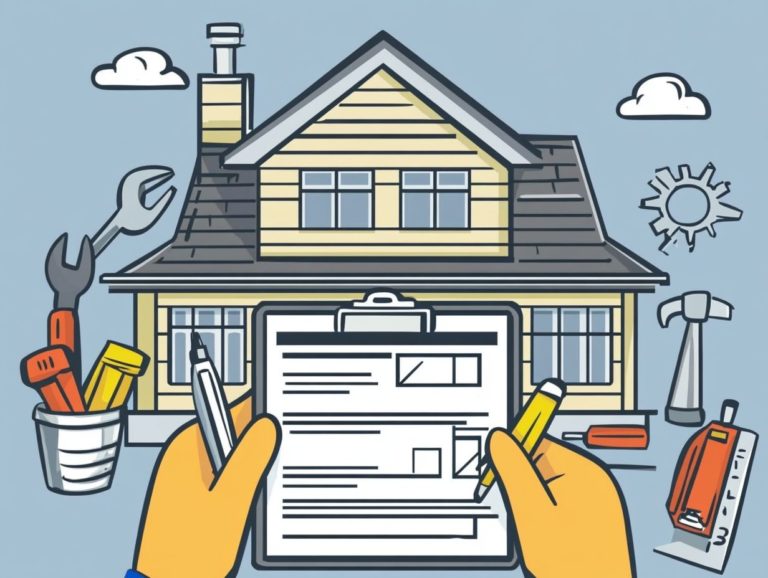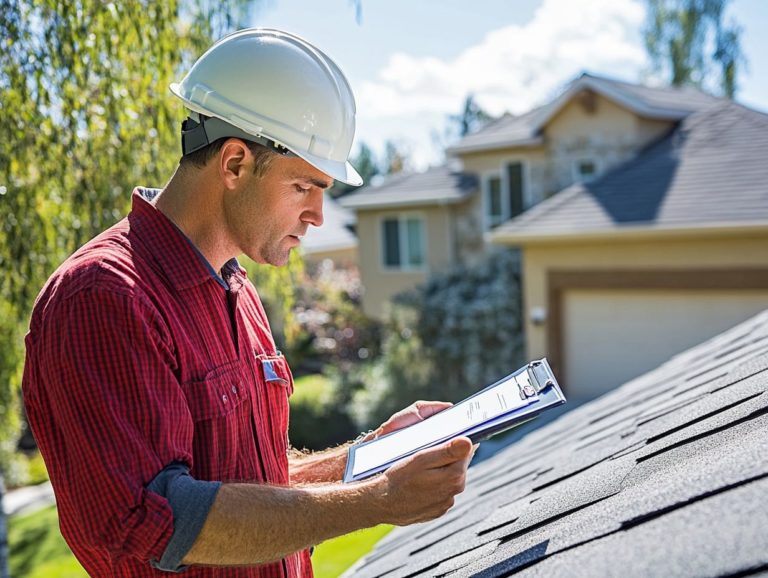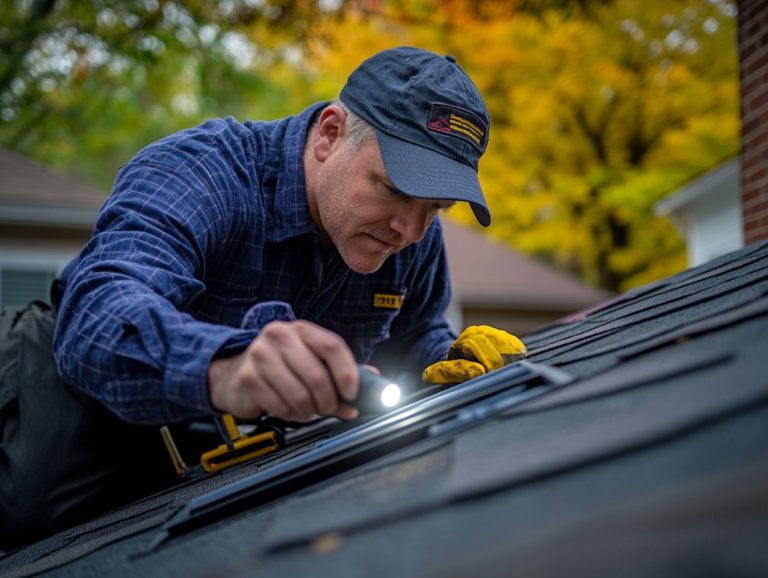The Importance of Home Inspections for Buyers
Purchasing a home is one of the most significant investments you’ll ever make. Ensuring that investment is solid is absolutely crucial. A home inspection acts as a vital step in the buying process, providing you with a comprehensive assessment of the property’s condition.
This article delves into what a home inspection entails, why it’s essential for you as a buyer, and what to expect during the process. You’ll also discover how to select the right inspector, common issues that may crop up, and strategies for negotiating repairs or price adjustments based on what the inspection reveals.
Whether you’re stepping into homeownership for the first time or you’re a seasoned investor, grasping the ins and outs of home inspections will empower your purchasing decisions. It will also help you navigate this important journey with confidence.
Contents
- Key Takeaways:
- What is a Home Inspection?
- Why Home Inspections are Important for Buyers
- What to Expect During a Home Inspection
- How to Choose a Home Inspector
- Potential Issues Uncovered During a Home Inspection
- Negotiating Repairs or Price Reductions Based on Inspection Results
- Frequently Asked Questions
- What is the importance of home inspections for buyers?
- When should home inspections be conducted?
- Who should perform the home inspection?
- What does a home inspection include?
- Are there any potential red flags that buyers should look out for during a home inspection?
- Can a home inspection affect the final purchase price?
Key Takeaways:
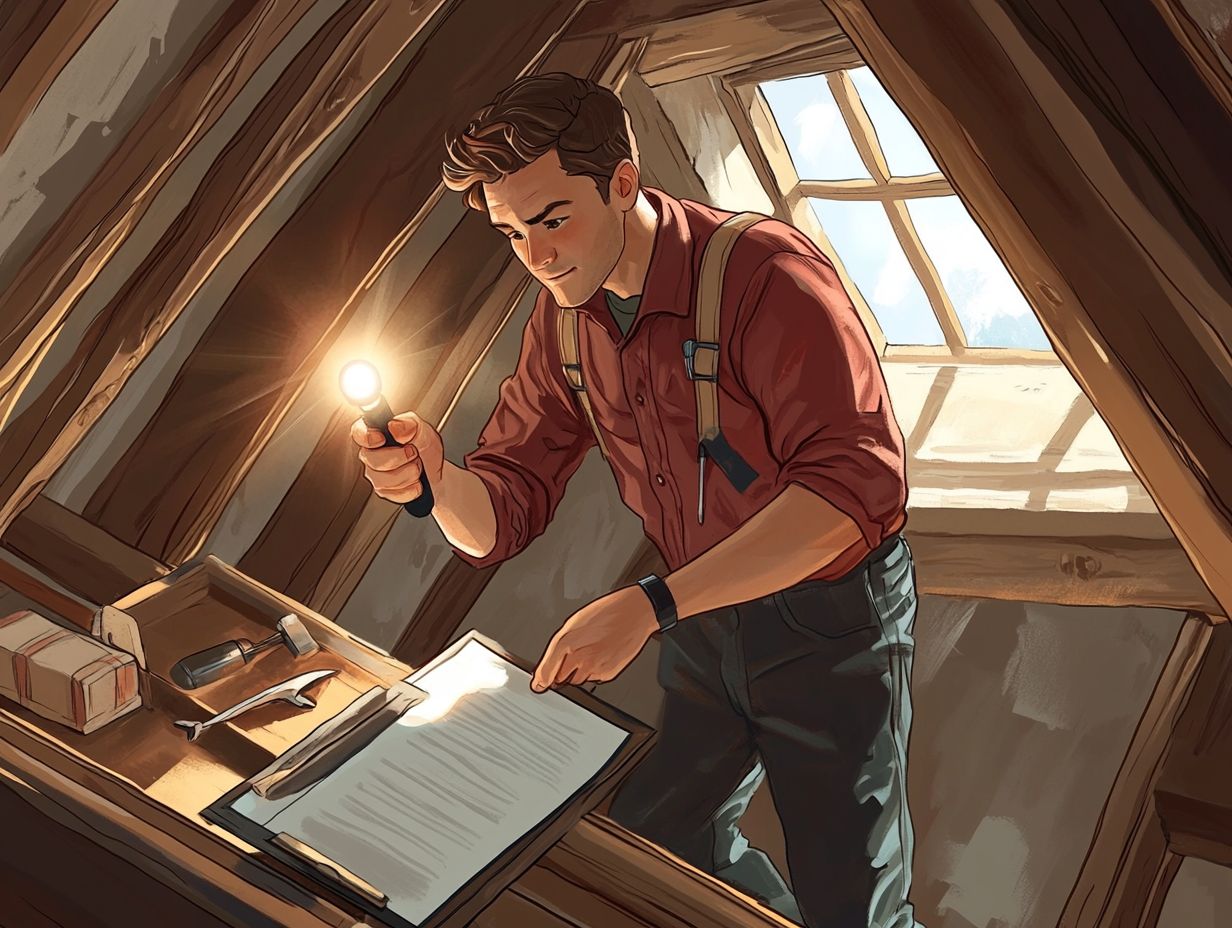
A home inspection is a crucial step in the home buying process, highlighting the importance of pre-purchase home inspections. It provides buyers with a comprehensive understanding of the condition of the property.
A thorough home inspection can uncover potential issues and highlight the importance of home inspections for new homeowners, ultimately saving buyers from expensive repairs in the future.
When choosing a home inspector, consider their experience and qualifications. Ask for references to ensure you receive a high-quality inspection.
What is a Home Inspection?
A home inspection is an essential milestone in your real estate journey. It offers you a detailed evaluation of a property’s condition through a careful check by trained inspectors, highlighting the importance of home inspections in real estate deals.
This process covers a wide range of components, from the roof s integrity to the functionality of HVAC systems, plumbing, and electrical systems. It ensures that any potential issues like structural concerns or safety hazards are brought to light.
The inspection report generated afterward becomes an invaluable resource. It provides you with insights into the home’s current state and guides your future maintenance decisions.
Definition and Purpose
The primary purpose of a home inspection is to offer you a thorough evaluation of a property’s condition, empowering you to make informed decisions throughout the purchasing process.
This assessment uncovers any potential issues such as structural defects, plumbing complications, or electrical safety risks that may not be immediately apparent.
By investigating various components of the property, including the roof, foundation, and essential systems like heating and cooling, these evaluations are critical in ensuring the home s overall safety and longevity.
Should the inspection reveal significant concerns, you have the opportunity to negotiate repairs or even reconsider your investment.
Ultimately, this process safeguards your financial interests. It also provides you with the peace of mind that comes from knowing you re making a well-informed choice about your future living environment.
Why Home Inspections are Important for Buyers
Home inspections are critical for you as a buyer, providing insights into potential issues that could lead to expensive restoration projects or safety hazards post-purchase.
By addressing these concerns upfront, you can alleviate buyer’s remorse and significantly enhance your negotiating power during the purchasing process.
Benefits of a Thorough Inspection
A thorough home inspection presents a wealth of advantages for you as a home buyer. It particularly helps in identifying critical issues that could compromise safety or impact property value, highlighting the importance of home inspections for property buyers.
By uncovering hidden defects like outdated electrical systems or plumbing concerns you can tackle these issues before sealing the deal. This proactive stance protects your investment and significantly strengthens your position during negotiations.
When you re well-informed about potential repairs or safety hazards, you can negotiate for price reductions or request that the seller address these issues. This can lead to a more favorable purchase agreement.
Understanding the property’s condition also allows you to effectively plan future budgets for maintenance and improvements. This makes it a wise choice for your long-term financial health.
What to Expect During a Home Inspection
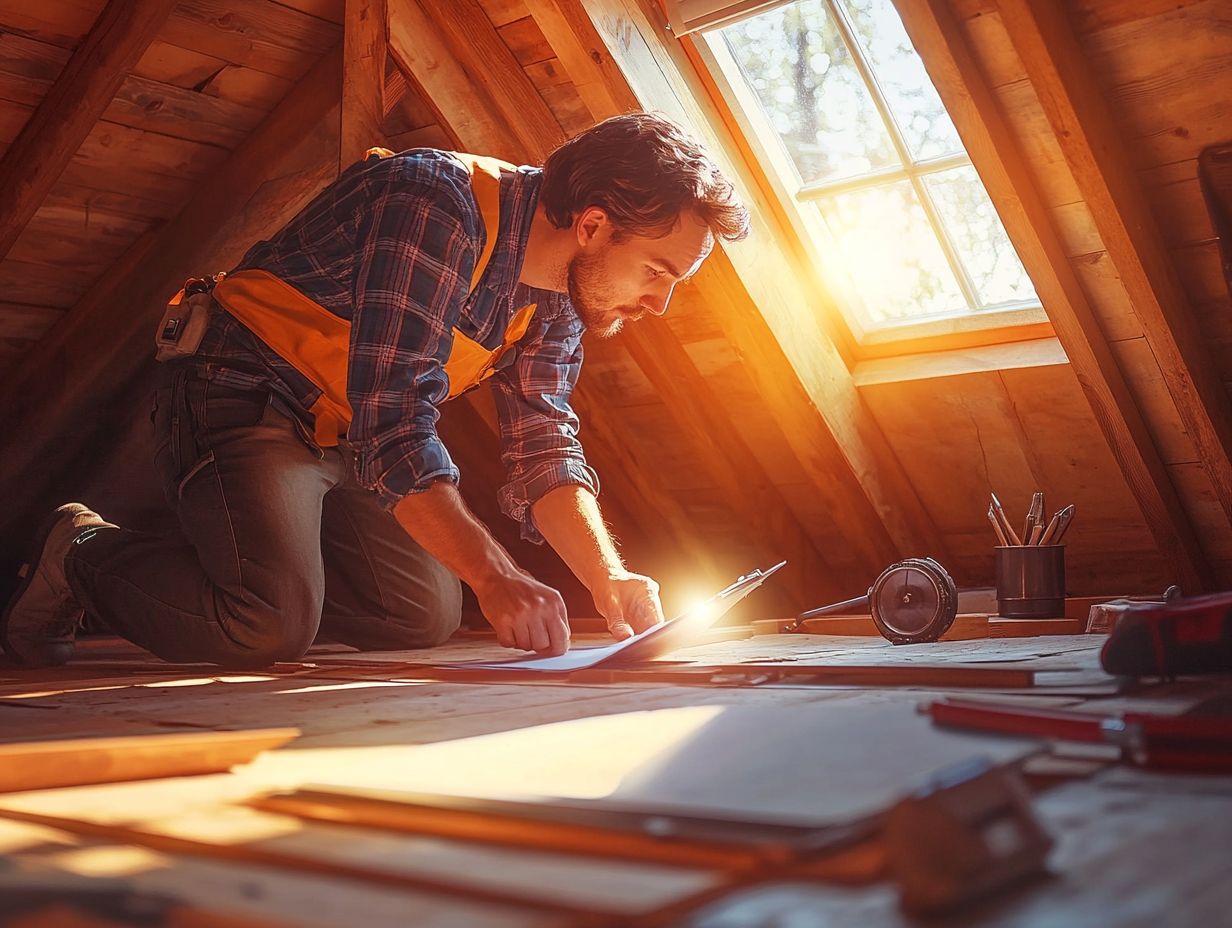
During a home inspection, you can expect a careful check of the property. Qualified home inspectors will examine critical areas, including the roof, heating and cooling systems, plumbing, and electrical systems.
This process ensures all components meet safety standards while uncovering any potential issues that could affect the home s value or safety.
The Process and Key Areas Checked
The home inspection process involves checking key areas, such as:
- Heating and cooling systems
- Roof
- Plumbing
- Electrical systems
Inspectors start by evaluating the heating and cooling systems, checking for efficiency and proper installation since these systems help maintain temperature and air quality.
Next, they assess the roof, looking for signs of wear, leaks, or damage that could lead to costly repairs.
In terms of plumbing, the focus is on checking for leaks and ensuring adequate water flow. Both are critical for a home s overall functionality.
Electrical systems are examined for outdated wiring and safety hazards, which can pose significant risks. Each of these components plays a crucial role in ensuring the safety and longevity of the home.
How to Choose a Home Inspector
Selecting the right home inspector is vital for a thorough and accurate evaluation of a property. As a buyer, consider factors such as the inspector’s credentials, experience, and customer feedback. Additionally, understanding the importance of home inspections can further guide your decision-making process.
Ask questions about their inspection services and costs. This will help ensure you receive a high-quality report that meets your expectations.
Factors to Consider and Questions to Ask
When selecting a home inspector, carefully consider:
- Experience
- Credentials
- Customer feedback
Ask questions to make an informed decision. Inquire about the inspector’s familiarity with the specific type of property you’re considering. Different homes can present unique challenges that require specialized knowledge.
Check if the inspector follows industry standards and ethical guidelines. Are they affiliated with reputable organizations that advocate for best practices?
Discuss the inspection process itself. Understand how detailed the report will be and how long the inspection typically takes. Knowing the inspector’s communication style and availability for follow-up questions can enhance your experience.
Potential Issues Uncovered During a Home Inspection
A home inspection can reveal potential concerns that need your attention. Issues like:
- Structural problems
- Pest infestations
- Mold
- Electrical issues
- Foundation challenges
These common problems can significantly affect the property s safety and long-term value if not addressed promptly.
Common Problems and Their Implications
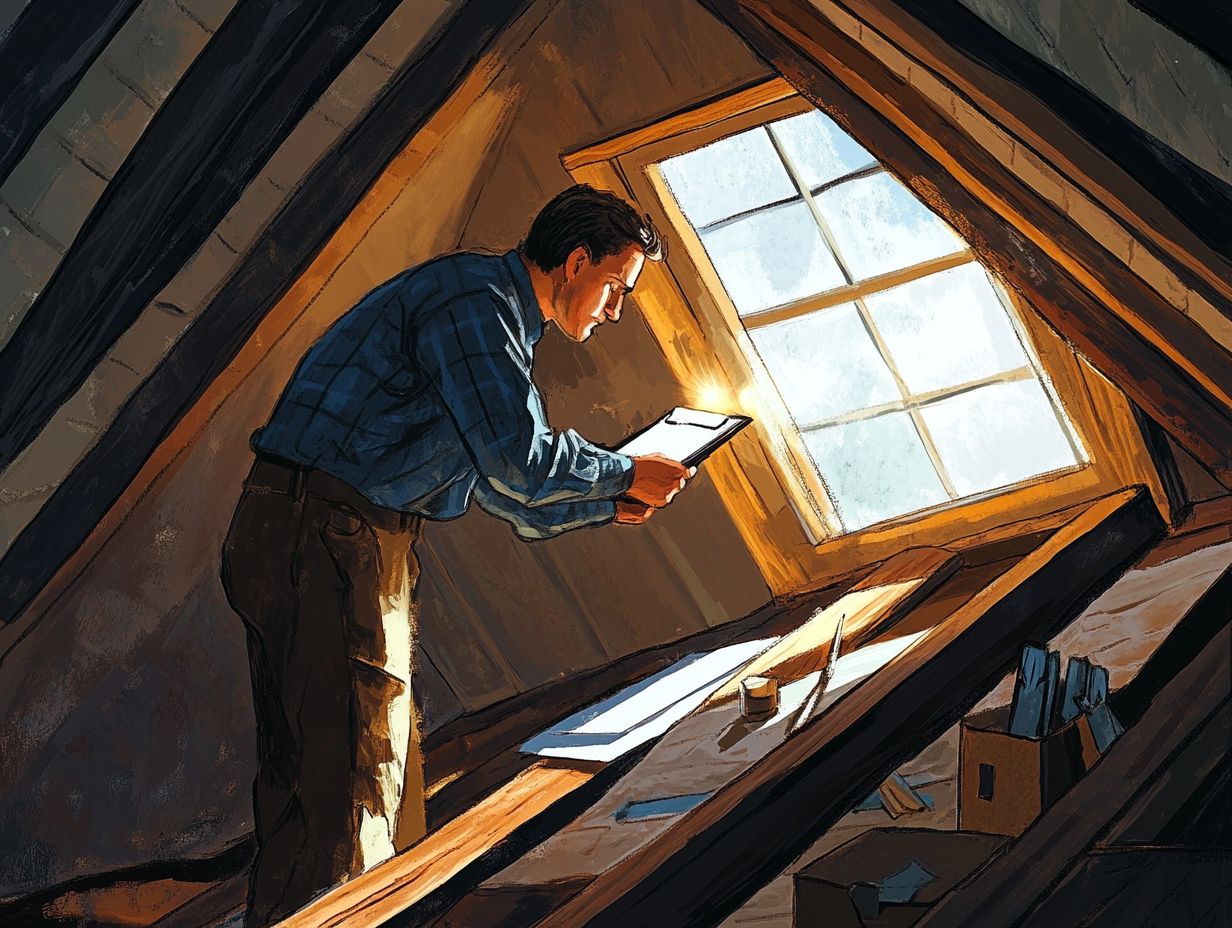
Common problems identified during a home inspection can significantly impact the safety and value of your property. These issues threaten livability and can lead to quickly escalated repair costs if not addressed timely.
For instance, structural deficiencies can undermine the integrity of the building, putting you at risk. Pest problems can lead to further damage, jeopardizing your household s health and the market value of your investment.
Unresolved electrical issues can create serious hazards, including fire risks definitely not something to take lightly.
These factors emphasize the critical need for a thorough inspection, making it clear that proactive maintenance is essential for safety and avoiding financial burdens.
Don’t miss out on the opportunity to secure your investment schedule an inspection today!
Negotiating Repairs or Price Reductions Based on Inspection Results
Negotiating repairs or price reductions based on home inspection results is a crucial moment for you as a home buyer. This is your chance to gain leverage to request essential repairs or adjustments to the purchase price.
It s an opportunity to ensure that the property’s value reflects its true condition and addresses any potential risks revealed during the inspection.
Tips for Successfully Negotiating
Successful negotiation after a home inspection hinges on thoughtful preparation, clear communication, and understanding the inspection report. This enables you to effectively use your findings to negotiate repairs or price reductions.
Start by reviewing the inspection report carefully. Highlight major issues that could impact safety or significantly affect the property’s value. When presenting these findings to the seller, offer clear, documented evidence like photographs or comparisons with similar recent sales where repairs were made.
Understanding the costs tied to these repairs is crucial. Gathering estimates from contractors can strengthen your position. Keep the conversation going! Open discussions can lead to better agreements.
Remember, being respectful and flexible often fosters goodwill, making sellers more inclined to pursue a fair agreement.
Frequently Asked Questions
What is the importance of home inspections for buyers?
Home inspections are essential for buyers as they provide a comprehensive evaluation of the property’s condition. Understanding the importance of a home inspection for buyers helps identify potential issues before making a purchase, allowing for informed decisions and avoiding unexpected costs in the future.
When should home inspections be conducted?
Home inspections should occur after the initial offer has been accepted and before the final purchase agreement is signed. This gives buyers time to negotiate repairs or request price adjustments based on the inspection report.
Who should perform the home inspection?
Hiring a skilled professional can make a world of difference! It is recommended to hire a licensed home inspector who has the expertise to thoroughly assess the property and provide a detailed report of their findings.
What does a home inspection include?
A standard home inspection includes a thorough examination of the property’s structure, exterior, roof, plumbing, electrical systems, heating and cooling systems, and appliances. It may also cover the condition of the home’s foundation, insulation, and ventilation.
Are there any potential red flags that buyers should look out for during a home inspection?
Some common red flags to look for include structural issues, mold or water damage, faulty electrical wiring, plumbing leaks, and outdated or damaged appliances. These issues can be costly to repair and may affect the property’s overall value.
Can a home inspection affect the final purchase price?
Yes, a home inspection can impact the final purchase price. If significant issues are found, buyers can negotiate with the seller to either make repairs or adjust the price accordingly. This can save buyers from unexpected costs and help them make a more informed decision about the property.
Wondering how to maximize your home inspection benefits? Act quickly to secure the best price! Consult with a local inspector today!



